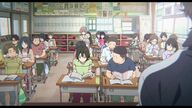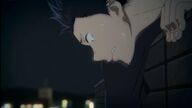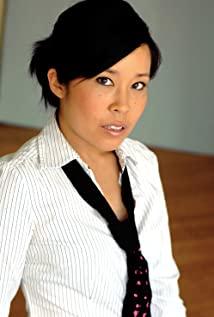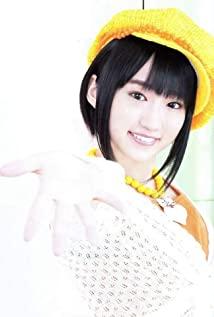"Shape of Sound" I have only seen this movie, not the original manga, so I will analyze it directly from the movie and talk about my feelings.
I think this is a story about the bully and the bullied, respectively, to get rid of the stigma that this role has given them, and to re-face their lives. The film does not focus on exploring the reasons behind bullying and the attribution of responsibility, but focuses on the mental journey of the characters, but it still involves more or less the reasons for the social problem of bullying. I want to start here, so that I can better understand the meaning of each character.
Let's start with Saya's elementary school. From the clip accompanied by a piece of music with a rock and hip-hop style, let us know that this boy named Shogi is a person who can be called the king of children, at least the head of a small group. As we have experienced, this role has its own sidekicks, its own prestige, and both sides among children. When he met an "abnormal", the deaf Nishinomiya, what he showed was a natural human being's curiosity about "anomalies" (at the beginning, he did not bully Nishinomiya when he saw her, but just observed from the sidelines). How this curiosity turned into bullying, I have to mention their indifferent, extremely irresponsible, and disgusting head teacher here.
Empiricism says that all human knowledge and reason are summed up through learning; rationalism says that people are born with reason, and acquired learning is just learning to use rational methods. No matter who is right or wrong between these two kinds of thoughts, it is true that the formation of human thoughts, the formation of this web of experience, takes some time and at the same time is greatly influenced by the surrounding environment (things experienced). . Rousseau said: "Man is born free, but everywhere he is in chains", which is also in line with this statement. Humans are born with a blank sheet of paper, they are all in negative freedom (freedom without rules), they do not understand the rules of human society, and they have not formed a complete logical understanding of things. If it is assumed that such a newborn can grow up alone in human society, he will definitely not agree with the rules of human society and agree with his own obligations and rights! This is what Rousseau called man born free. But human beings live in groups. A person's power in nature is very small and it is difficult to survive. Therefore, people have to pay the price of this natural freedom and make some rules to form a society to survive. As long as people get along with others, they will definitely produce Rules, people follow the recognized rules, are the basics of the operation of human society. This is called "freedom in chains" (and true freedom).
As mentioned above, newborns must learn through experience in order to have their own thoughts and understand or accept the rules. And will also be during their elementary school, it is in this experience learning time. As long as people get along with others, rules will emerge. It can be seen that even the elementary school students in the film have their own organizational system. And what kind of thinking they will eventually form and what kind of understanding they will have on the rules of society, this is also closely related to the so-called "teaching example" teacher.
Now that the essence of human beings' getting along has been explained, let's talk about why Nishinomiya is bullied.
Any human society, group, or organization is resolutely excluded from aliens that are different from their own established rules. The law judges those who violate the rules that everyone obeys, the religion judges the infidels, the political group engages in class struggle and so on. And in the elementary school where Shogun and others waited, Nishinomiya's way of doing things was an anomaly. As Ueno said to Nishimiya on the Ferris wheel - Nishimiya never tried to understand Ueno (in fact, Nishimiya was inferior), ignoring the atmosphere and saying sorry, passing a strange book. In fact, the most important thing is that Nishinomiya can still get some care, an obvious manifestation is in the paragraph of "reading the text", Ueno was criticized but Nishinomiya did not. Nishinomiya's deafness and her timeless and well-behaved image have a good way to describe Ueno, who is a normal person - the empty world (a person who does not distinguish the time). This sentence is a very harsh reprimand for the Japanese. So naturally, Ueno began to reject her. Originally, with Ueno's angular character, he couldn't get along with such "different people".
But in fact, whether it is Ueno or Shogi, they are still in the stage of formation, their thoughts have not yet been supported by complete rational logic, and their relationship with people is only based on their own willfulness and instinct. (instinctive rejection of aliens). Just like the emotions reflected in the film when they bully Nishinomiya, the cheerful music expresses a pure emotion, nothing mixed, just out of the pleasure of overriding others, without considering the consequences. If it's a thoughtful and rational person, he wouldn't risk breaking the law because he simply hates a person, but these elementary school students obviously don't think about it. At this time, the person who should have stood up was the teacher I had to mention earlier.
But this teacher is simply out of line. There were obviously two times, when General also obviously deliberately learned the tone of Nishinomiya to tease her, and when General was also behind Nishinomiya to scare her, he took it lightly and used an indifferent attitude, losing the opportunity to educate them, Make them think they can do whatever they want. What else can you expect from a teacher who allows such incidents to disrupt discipline and blatant insults in his own classroom? Therefore, the general can act according to the "rules" that he has not considered, bullying Nishinomiya recklessly, and the punishment that should have come from the teacher who is the host of the rules is late.
What's even more abhorrent is that after the incident became serious, he pretended to be angry and put the blame entirely on Jiang Ye in one sentence, making him a scapegoat. Maybe it's not accurate to say that, but is it really him who has the "sin"? The instigation, indifference, and most importantly, the teacher, the educator, all contributed to this result, but in the end, it was the general who was to blame. Is it unfair?
This creates a very ironic result, will also bear all the sins, and because of the betrayal of the accomplice (attempted), become another bullied. Of course, no one will help him this time, just like when he bullied Nishinomiya. And this huge contrast made him not only hated his previous behavior, but also caused his inferiority - as a perpetrator, as a punished perpetrator, as a punished and spurned perpetrator As a perpetrator who was punished and cast aside and brought pain to his beloved family - this kind of inferiority is like a criminal who has committed a serious crime, even if he is rehabilitated in prison, he will remain after his release. To be spurned by others—first of all he was spurning himself on himself. As Will also said in his confession - "I am the one who must carry those sins and be punished".
Then Jiang was also deaf, he didn't dare to face his past actions, and he didn't dare to face the self that he hated. He was completely separated from the outside world. The ❌ on other people's faces in Jiang's eyes does not mean that Jiang will not accept them, but that Jiang will not be able to approach them, and that Jiang will not be confident that he will be accepted by others.
It is such a dying person, but he went to see Nishinomiya when he was about to die (according to his words, it was a death ceremony). Due to the long-term loneliness and guilt, he was made to say that he wanted to be friends with Nishinomiya. But what he didn't expect was that Nishinomiya was still willing to accept him even if he was himself like this. Coupled with the love of Shogi's family for him, this made him give up suicide, and instead wanted to try to do something for Nishinomiya, and wanted to be friends with this person who could forgive and accept him. At this time, Jiang will no longer simply face Nishinomiya with an attitude of atonement, but really wants to be friends with Nishinomiya. After all, she is someone who can accept herself, and if she becomes friends with her, she will be able to face herself to some extent. So we see the panic that will also want to exchange email addresses, in order to help her find her friend Sahara in elementary school, she faces Kawai who she can't face, and even wants Ueno to reconcile with her.
But why would Nishinomiya forgive and accept someone who had hurt him so easily? Is she a good gentleman in the play?
I think she, like Will, also has a deep low self-esteem. This inferiority is of course deaf. I am not qualified to comment on how much harm a disability can bring to a person, let alone the harm to children. Just like what she said to Ueno on the Ferris wheel, her tolerance, her tolerance, and various actions are all because she hates herself. Because I am different from others, if I can get a smile from others, it is a supreme happiness. I am different from others, so I put myself in a low position and pray that someone will accept me. This kind of inferiority caused by differences is the most exciting place for Zhiye!
These two protagonists, Shogun and Nishinomiya, both have a deep inferiority complex and disapprove of themselves. Ironically, it wasn't their own fault, or at all. Both of them suffered from being denied and excluded; both put themselves in a humble position, always showing a sad smile and then walking down alone. This attitude is the cause of the conflict that follows.
Nishinomiya hates himself even more because of Ueno's words; will also be puzzled on the way to face himself and become friends with Nishinomiya - when he spends happy time with the friends he has worked hard to exchange, he is in Doubt that a "sinner" like yourself can really be so happy? Because of Shibata's ignorant words, he began to wonder if he could really be forgiven by Nishinomiya?
These reasons eventually led to a quarrel among the crowd on the bridge. Due to his inferiority complex, Jiang also regained his identity as a "sinner" of the perpetrator, took all the responsibility on himself, and mercilessly pointed out the pain to his friends.
Here I only analyze Ueno and Kawai who are involved in the incident. Ueno has always regarded Nishinomiya as a normal person. She did not feel pity for Nishinomiya at all, and she was straightforward about the trouble that Nishinomiya brought her. On the Ferris wheel, she also wanted to maintain an equal relationship with Nishinomiya, and she didn't want to apologize and didn't want Nishinomiya to apologize. And it did point out the reason why Nishinomiya was isolated and bullied. Relationships built on pity are really not worth mentioning, she sees that clearly. After Jiangya fell, she reprimanded Nishinomiya "a guy like you who only thinks about his own things makes me the most angry", what she actually expressed was the inferiority and self-esteem that Nishinomiya showed when getting along with others. Unequally annoying, because of this inferiority complex, this kind of thinking desperately trying to attribute all the mistakes to myself (just like Nishinomiya thinks that he will also quarrel with his friends on the bridge because of his own misfortune), and sometimes It will hurt those who care about Nishinomiya. Although Ueno has always been thinking from the perspective of Shoya, she actually sees the problem very thoroughly-Nishinomiya Kazuya does not need to be the protagonist of the tragedy, she hopes that Shoya and Nishinomiya can face up to themselves and stop hating themselves. This is why she explained the relationship between the two and Nishinomiya's situation on the Ferris wheel, and put forward the reason for getting along well in the future; it is also the reason why she asked Shogun to meet Ishida, who had bullied him before, and hoped that Shogun could also face Ishida. From this perspective, Ueno has been insisting on his own way of atonement, not through apology, but to establish an equal relationship with the two, even if they will be hated.
On the other hand, Kawai is more like an ordinary person like us. She has a good heart and gets along well with everyone. Even when Nishinomiya was bullied, she did not join it, but just kept watching; In the case of such a disgusting character, who was out of the group in high school and appeared eccentric, she did not avoid Jiangya or express disgust, but still treated him kindly, and even introduced Jiangya to him in the process of trying to change. friends. But Kawai has never stood up, just kept moving with everyone. Does she really have no guilt towards Nishinomiya? This is clearly not the case, judging from her emotional revelation after Nishinomiya's attempted suicide. She didn't stand up to help Nishinomiya, and she always thought that what she did was not a big problem because of the "rules" and "rejection of aliens" she said before. Many ordinary people have no strength to resist the established rules, especially in the face of a stranger, compassion is difficult to support you to risk losing your "place in society", "being treated as and thought". The person who helps is like an alien" is in danger of going to pay for that person. So most people, like Nishinomiya, chose to watch on the sidelines. Maybe some bystanders will be more sympathetic, and they will secretly find someone who has the ability to break the rules and change the rules to uphold justice (this person should have been a teacher in the elementary school at that time), but unfortunately , Kawai can not find such a role, can only let the situation develop, and he will use a classic reason to appease himself - "every snowflake does not think that he is responsible for the avalanche". If you are such a person, then you are not qualified to ask for more of Kawai.
At this point, the film reaches a point of conflict. Nishinomiya died because of his grandmother, and because of his inferiority complex, he thought that he would also quarrel with his new friend, all because of himself, because he would bring misfortune. The film uses a variety of light changes to create a feeling that Nishinomiya is in an ethereal state when Nishinomiya comes out to relax after grandma's funeral. In fact, it leaves a good foreshadowing for the subsequent suicide. And will also be because of the remorse for his own mistakes and disgust for himself, he is trying to help Nishinomiya, facing himself, and making friends, in the middle of good times, or because of his deep inferiority, because Shibata Just a few words shook the confidence of being a good friend with Nishinomiya. During the happy play time with his friends, he was still thinking about whether he was eligible to get these.
Saya was the first to make the changes that the film wanted to convey the most. After watching the conversation between Ueno and Nishinomiya on the Ferris wheel, especially after he and his friends fell out, Nishinomiya said that it was all because of his own reasons. Next to Nishinomiya, as he said, "I want Nishinomiya to like herself". And what he did is just like what Ueno did to him. He didn't want Nishimiya to feel guilty about his own affairs, and wanted her to get rid of these shackles of inferiority and face herself again. So first of all, I will cheer myself up and let Nishinomiya know that it will not be unfortunate to be with her, and that his own mistakes do not need to be borne by Nishinomiya, and he must set an example for Nishinomiya. But this was not enough, so when Jiangya held on tightly to Nishinomiya who jumped downstairs, he kept praying in his heart that he would truly face himself, no longer be bound by the inferiority of the previous perpetrator, and would have a good relationship with Nishinomiya Apologizing, I will take it seriously, deal with everyone on an equal footing, and tear off everyone’s faces❌. Let Nishinomiya no longer blame himself for his frustration, and want Nishinomiya to feel happy when he gets along with himself like this! This is what Sakaya really wanted to say!
After Nishinomiya was injured, Ueno once again pointed out that it was because of her low self-esteem and ill-timed guilt that made Shogun so hard. She also expressed her determination to change to Yongshou who came to visit Shogun. - "I want to get back what I destroyed again!"
Her way is to reconcile, which is childish, but of her own will. She is no longer an airbag who can only say an apology, but as she will also expect, she will try to establish an equal relationship with everyone. If you want to get back what you have destroyed, you must refer to what you have always lost because of your unsound mentality. From this moment on, Nishinomiya is no longer the one who hates her inferiority complex. She knows for sure that the people who care and love her in the world, her mother, sister, grandmother, Shoya, Sahara, even to her The guilt-ridden Kawai and Ueno, who finally reconciled in the rain. And the classmates she saw in her dream showed a warm side to her, which was exactly what she saw when she no longer felt inferior.
The two helped each other, broke through their psychological shackles, and faced their lives anew. I think that's the main story of this film. Bullying is social violence, not only because of one person's reasons, everyone involved is responsible, because the greatest responsibility lies in the exclusion of aliens in human society. Therefore, the film did not talk about the plot of "revenge" and "punishment", and did not portray the characters in the play as symbolic good, evil, beauty and ugliness. Rather, it is intentional to express a person who is complex and full of contradictions. The mental journey of these two protagonists may be worth more than pure pleasure and hatred to everyone in the same situation.
The end of the film is also very good. After completing the reconciliation with self, Jiang Ye gradually opened his ears that had been closed for a long time, abandoned self-punishment and self-loathing, and listened to everyone's voice. Although there are harsh voices in these voices (that guy still dares to come to school), but at the same time, the love of his friends, the support of his family, those who are also important to the generals flashed in front of his eyes one by one, and the previous generals also changed from I have never experienced these voices, so that when these feelings come violently, tears fall like rain. This is where I am most moved.
Although the world is cruel, even so, you can't belittle yourself. You must go on bravely with the love of others for yourself. Although such a sentence is a meaningless so-called "chicken soup" in the eyes of many people, it shines brightly under the subtle emotional contrast of this film. Maybe people really need such simple emotions, and the pursuit of "maturity" is a kind of "following the rules".
Saw a good movie, above.
View more about A Silent Voice: The Movie reviews











